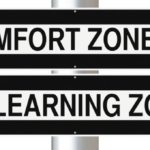
How to Respond to Hostile, Inappropriate Comments in Class
When hot moments ignite in the classroom, it is important to engage thoughtfully and purposively in strategies that maintain a supportive communication climate. Managing hot moments is a complex endeavor, and it is our responsibility to maintain a climate that is conducive to learning by












